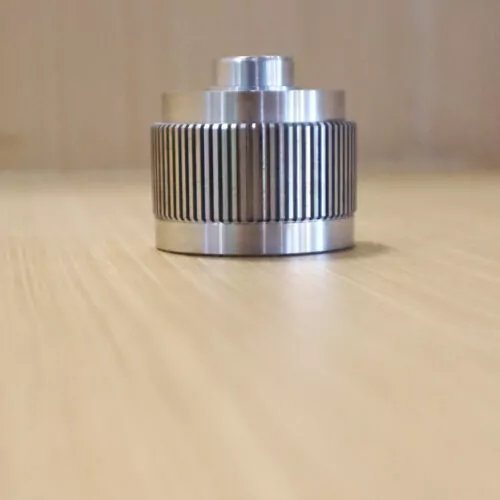Wire Electrical Discharge Machining (EDM) is a cutting-edge manufacturing technique that has revolutionized the production of complex shapes and tight tolerances. By utilizing advanced wire EDM techniques, manufacturers can push the boundaries of what was previously thought possible, opening up new possibilities in various industries.

The Power of Wire EDM
Wire EDM is a non-traditional machining process that uses a thin, electrically charged wire to cut through conductive materials with extreme precision. Unlike conventional machining methods, wire EDM does not rely on physical contact between the tool and the workpiece. Instead, it utilizes a controlled electrical discharge to erode the material, resulting in intricate and accurate shapes.
One of the key advantages of wire EDM is its ability to achieve complex shapes and tight tolerances that would be difficult or impossible to achieve with other machining methods. The wire can be programmed to follow intricate paths, allowing for the creation of intricate and highly detailed parts. This makes wire EDM particularly well-suited for industries such as aerospace, automotive, medical, and electronics, where precision is of utmost importance.
Advanced Techniques for Complex Shapes
Pushing the boundaries of wire EDM involves utilizing advanced techniques to achieve even more complex shapes and tighter tolerances. One such technique is multi-axis wire EDM, which allows for simultaneous cutting in multiple directions. This enables the creation of intricate geometries that would be challenging to produce using traditional machining methods.
Another advanced technique is taper cutting, which involves tilting the wire to create angled cuts. This technique is particularly useful for creating tapered features, such as draft angles on injection molds or angled slots in aerospace components. By combining taper cutting with multi-axis wire EDM, manufacturers can achieve highly complex shapes with exceptional precision.
Enhancing Tolerances with Wire EDM
Wire EDM is renowned for its ability to achieve tight tolerances, often in the range of a few thousandths of an inch. However, with advanced techniques and careful process optimization, even tighter tolerances can be achieved. For example, using a smaller diameter wire can improve the precision of the cuts, allowing for the production of parts with sub-micron tolerances.
Additionally, wire EDM can be combined with other machining processes, such as milling or grinding, to further enhance tolerances. By using wire EDM to rough out the shape and then employing secondary processes for finishing, manufacturers can achieve exceptional precision while maintaining efficiency.
Pushing Boundaries with Advanced Wire EDM Techniques: Achieving Complex Shapes and Tolerances
Pushing the boundaries with advanced wire EDM techniques is not limited to achieving complex shapes and tight tolerances. It also involves exploring new materials and applications. For example, wire EDM can be used to cut exotic materials such as titanium, Inconel, or carbide, which are notoriously difficult to machine using conventional methods.
Furthermore, wire EDM can be applied to various industries beyond the traditional sectors. For instance, it can be used in the production of jewelry, where intricate designs and precise cuts are essential. By continuously pushing the boundaries of wire EDM, manufacturers can unlock new possibilities and drive innovation in their respective fields.
In conclusion, wire EDM is a powerful manufacturing technique that enables the creation of complex shapes and tight tolerances. By utilizing advanced techniques and pushing the boundaries of what is possible, manufacturers can achieve exceptional precision and open up new possibilities in various industries. Whether it is through multi-axis cutting, taper cutting, or combining wire EDM with other processes, the potential for innovation is vast. As technology continues to advance, we can expect even more exciting developments in the field of wire EDM.








